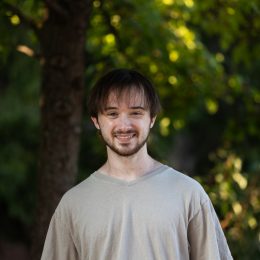
Randy Gardner was seeing things. Amid the flashing back and forth of bright lights, odd shapes started to come in and out of view. Through the whirring and buzzing, he was hearing things too: odd noises coming from nowhere and everywhere around him, specters haunting the spaces between his head. He was feeling nauseous, groggy, irritated and forgetful. His bones were aching, and his skin contracting, and his head pounding, and his mind racing. On top of all of this, just to make everything a little worse for Gardner as he entered his 11th day without sleep, every game of pinball he won was only to sustain his escalating hallucinations.
Pskov is a quiet little city in a fairly quiet part of Russia. It is a very old town in a country filled with old towns. Located in the northwest and situated right off the Estonian border, you may, or may not, know of Pskov for the world-famous Pskov Krom, a massive stone fortress of medieval origin. Pskov also has a number of very old churches — as all boring cities do — and some fairly colorful buildings. With all that Pskov has to offer, you may assume that it’s a top tourist destination in Russia, but, according to Wikipedia, “Unfortunately, the area presently has only a minimal tourist infrastructure, and the historic core of Pskov requires serious investments to realize its great tourist potential,” and “A huge portion of the population died during the war.”
Pskov is also well-known for being the birthplace of Oxana Fedorova, the 2002 Miss Universe, or, rather, she was the 2002 Miss Universe until she was stripped of her title (apparently the proper terminology is “dethroned”) four months after she was crowned for failure to “fulfill her duties.” At the time, she told news sources she gave up the title to focus on graduating law school, denying that she was fired and putting rumors that she was married or pregnant to rest.
The actual thing that Pskov is probably most famous for — even though everything I just said is both true and very interesting — is the fact that some of its people used to practice human hibernation.
This whole circus started with a science fair. Gardner, then 17, wanted to be competitive and had recently heard of a man in Hawaii who stayed awake for 260 hours. So, setting out with two of his friends, who would keep tabs on how well he was functioning and try to keep him up, he aimed to break the record. Throughout the experiment, Stanford sleep researcher William C. Dement would keep him awake by forcing him to play pinball and basketball, and this would also serve as a good way to measure what was left of Randy’s cognitive abilities. By the time he finally threw in the towel, he had broken the record and then some, staying awake for 11 days and 25 minutes.
Gardner would later comment on the experience. He said: “I mean, it was crazy, where you couldn’t remember things, it was almost like an early Alzheimer’s thing brought on by lack of sleep.” So, ultimately, what did Randy get out of this? What did he achieve by breaking this excruciatingly painful, meaningless record, a record which would be broken again two weeks later?
He got first place at the science fair.
It’s said that the people of Pskov, during times of famine, practiced what they called “lotska.” At the first sign of snow, families would huddle into their homes, circle up around a stove and fall into a deep sleep. Every day, for around an hour, they would wake up to eat some bread and drink some water before moving back to their position of warmth and falling back asleep. After a few months had passed, the snow would be gone, and the coming of spring would bring with it a renewal of life. Now, how much of this is actually true is up for debate.
The main source for this information comes from a piece published in the British Medical Journal dating back to 1900. There doesn’t seem to be any real scientific or anthropological evidence for this, so whether or not you believe in the truth of the lotska is a matter of faith. Faith in Russian folklore and fairytale, and faith in early 20th-century British medicine.
What do Gardner and the Russian peasants of Pskov have in common? In truth, absolutely nothing. All I know is that when I think about one, the other tends to follow not far behind. Maybe Gardner, in pushing himself so far beyond what was expected, needed or warranted, reached the same place that the peasants of Pskov reached; somewhere beyond life but not quite death. An in-between? Or maybe it meant nothing to him, and the hibernating peasants simply never existed.
Sometimes, I do wonder, though, what did they dream about? The Russian peasants of Pskov slept months at a time, shutting their bodies down just to survive another barren winter. What were they dreaming of? What did Randy dream of after torturing himself for 11 days straight by denying himself sleep? I doubt he even remembers. Still, I think it’s a question worth asking.
Dennis Molnoski is a sophomore majoring in cinema.
Views expressed in the opinions pages represent the opinions of the columnists. The only piece that represents the view of the Pipe Dream Editorial Board is the staff editorial.


